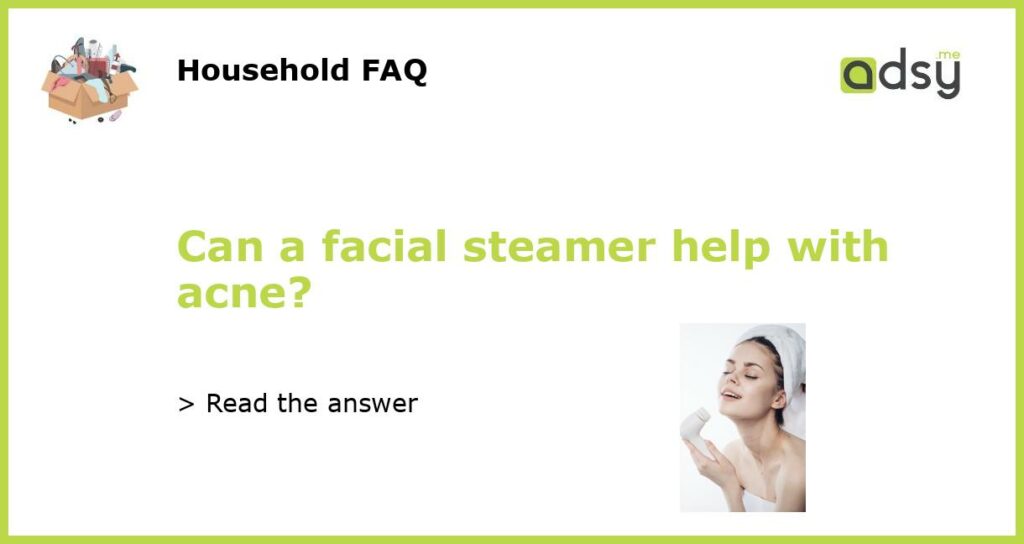Understanding Acne and why it occurs
Acne is a skin condition that affects people of all ages and affects more than 50 million Americans. While its most common form is associated with teenagers, it can appear at any time in life due to various factors. Acne occurs when hair follicles become clogged with oils, dead skin cells, and bacteria. This results in blackheads, whiteheads, pimples, and cysts. Factors that contribute to acne include genetics, hormonal imbalances, stress, and diet.
What is a Facial Steamer?
A facial steamer is a device that emits hot steam to your face. When used correctly, it can help to open up your pores and allowing your skin to breathe and more efficiently absorb skincare products. Facial steamers also hydrate your skin, which is a crucial factor in acne prevention. Facial steamers are typically compact devices that can be used at home, and they vary in price, from budget to higher-end models.
How does Facial Steaming help with Acne?
Research that discusses facial steaming and its impact on acne is limited. However, the steam from a facial steamer helps to stimulate blood flow and dilates blood vessels, which increases circulation to the skin surface. The heat from the steam also softens the debris and sebum that clogs pores, making it easier to extract. Additionally, facial steaming can reduce stress and help relax the facial muscles by stimulating the production of endorphins.
When should you use a Facial Steamer?
A facial steamer is typically used as a part of a skincare routine. It should be used no more than once or twice per week, as overuse can cause irritation. Before using a facial steamer, it’s important to wash your face, remove makeup and to use it for no more than 10-15 minutes. After steaming, it is recommended to apply skincare products to seal in the benefits.
Final Verdict
While facial steaming may provide benefits to people with acne-prone skin, it is not a cure for acne. It can be used as a part of a broader skincare routine to enhance the effects of other acne treatment products. However, it’s important to note that not everyone’s skin reacts the same way, and acne treatment can vary from person to person. It is advised to seek advice from a dermatologist to identify the best-suited treatment options for your skin.






